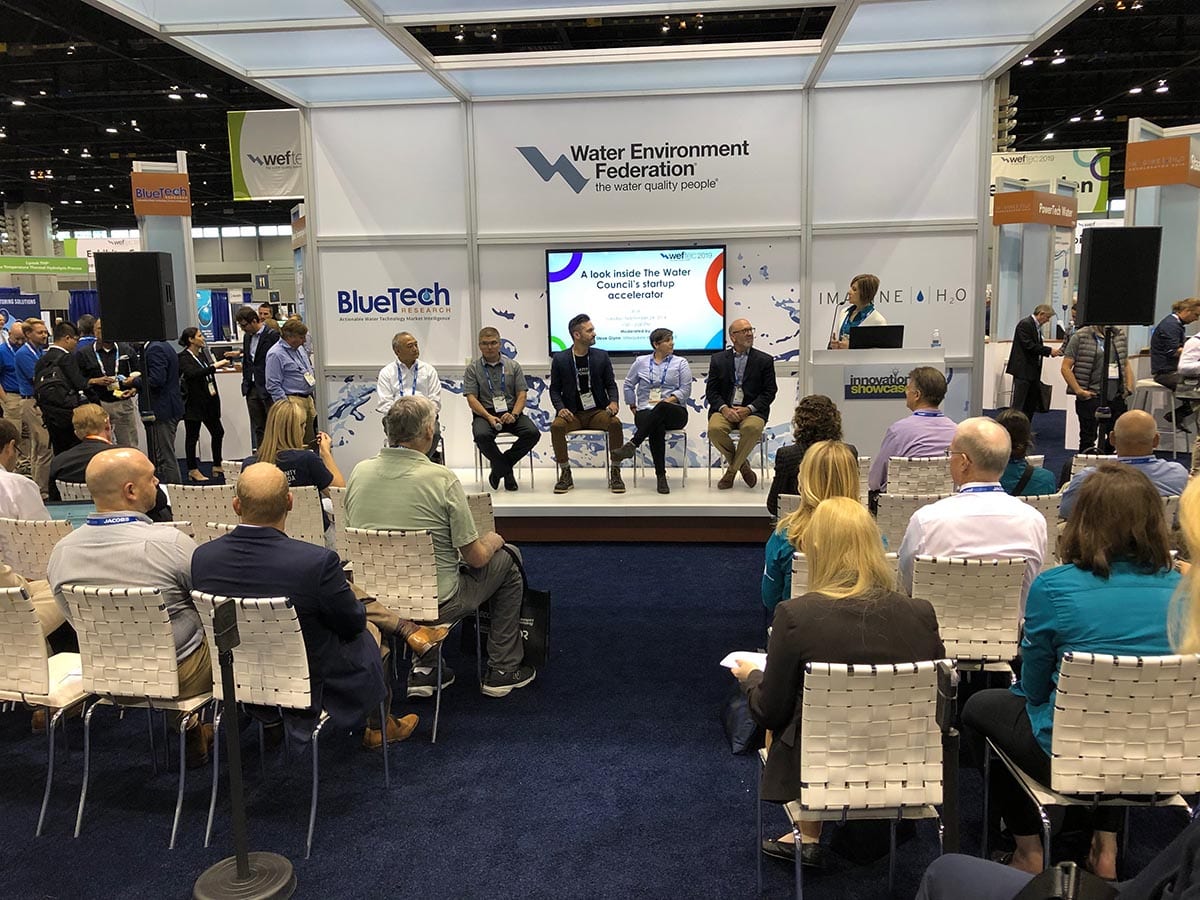
Karen Frost and Steve Glynn of The Water Council announced the Tech Challenge this week at WEFTEC in New Orleans.
Innovation and technological advancement solve problems and increase efficiency, yet often businesses aren’t aware of new technologies and scientific discoveries with the potential to solve problems the businesses face. A new program from The Water Council seeks to bridge this gap by connecting companies with innovation, whatever the source—whether it’s a startup, an established company interested in collaboration, a student or just an individual.
The concept of “open innovation” aims to break down barriers so cutting-edge research isn’t sequestered within companies’ research and development departments. Rather, in an environment of open innovation, ideas are shared freely so research discoveries can be brought to market faster, and sometimes have an impact beyond their original intent, as the ideas are shared with more people and new applications are envisioned.
In first the Tech Challenge round, which opens for applications Nov. 1, companies will pose problems in areas such as sensors, filtration and disinfection. Once the specific challenges are announced, all types of applicants can propose a solution. For each challenge, a group of finalists will be selected to present in person and compete for prize money, access to corporate R&D resources, and the opportunity to partner on the development, marketing, licensing or sale of the winning technology or idea.
“Tech Challenge is similar to a matchmaking program,” said Dean Amhaus, president and CEO of The Water Council. “While we will be awarding cash prizes to the Tech Challenge winners, the big winners are any and all applicants and any corporate sponsors that, through the process, get connected and reach a business deal where a solution is sold and a product is delivered to consumers.”
The sponsors of the first Tech Challenge round include A. O. Smith, Badger Meter, Evoqua Water Technologies and Rexnord/Zurn. Even finalists that don’t win the cash prize will have a chance to make connections with the sponsoring companies and receive feedback on their ideas. “Who wouldn’t want that?” said Steve Glynn, director of innovation for The Water Council.
The idea for the Tech Challenge grew out of a U.S. Department of Energy “Roundtable Discussion of Federal Prizes and Challenges” that took place at the White House in March. After taking part in that roundtable discussion, The Water Council continued the discussion with the Department of Energy on how these initiatives could be structured to stand the best chance of solving the pressing water challenges the U.S. is facing.
The result is the Tech Challenge, which aims to help companies deliver these solutions on an expedited timeline by leveraging The Water Council’s worldwide network of water technology companies, startups, academic scientists, private and government lab researchers, students and water-related nonprofits.
The Tech Challenge is one of several innovation-related initiatives The Water Council coordinates, but this one is unique in that there are no limits on who can participate. “The Tech Challenge really is open to anyone who has a viable solution to one of the problem statements put forth by the sponsoring companies,” said Glynn.
“In our fast-paced, connected world, what is still lacking is a method that allows any individual or small business with an innovative water technology solution to get paired with a company that is trying to uncover that novel solution,” said Dr. Barry Liner, a technical advisor to The Water Council. “Over the course of a year, Tech Challenge will be seeking proposals on a range of topics that Water Council corporate sponsors have identified as critical elements on products that they are working to bring to the marketplace or put into operation at a facility.”
Applications for the initial round will be accepted at watertechhub.com from Nov. 1, 2018, through Jan. 13, 2019, with finalists for each challenge announced in February 2019.
The Water Council expects to add additional topics and sponsors in future years of the program. Sponsors could be companies in the water technology industry or in water-intensive industries, for whom water technology innovations can make a big difference to operational costs and profits.






